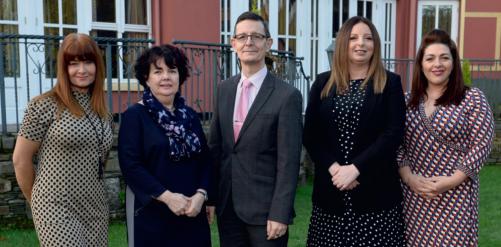Magazine of Northern Ireland Chamber of Commerce and Industry
MARCH/APRIL 2020 ISSUE 39 £2.95
MARCH/APRIL 2020
Once the skies opened, so too did our world
CIPR PRide Awards 2017 - Best Publication
We have come a long way since our first flight in 1940. Thank you for coming on this journey with us.
MAGAZINE OF NORTHERN IRELAND CHAMBER OF COMMERCE AND INDUSTRY
TRY AND SUCCEED
ULSTER RUGBY CEO JONNY PETRIE SPEAKS TO AMBITION
dublin airport ad.indd 1
19/12/2019 09:56






















